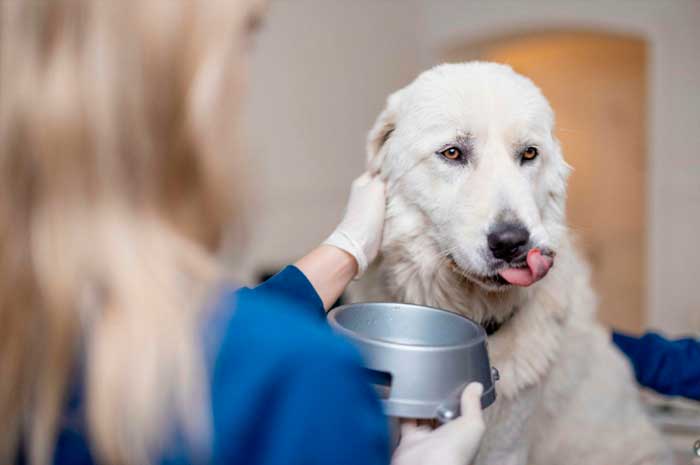Animals play an important role in our world, yet many face neglect and abuse, relying on human intervention to ensure their safety and well-being. Marc Korenberg notes how acts of compassion, from adopting pets to supporting conservation efforts, contribute to a kinder and more balanced atmosphere for them. Small, everyday actions, such as reducing waste and choosing ethical products, can collectively make a meaningful impact. Advocacy and education also help shape policies that protect animals from harm.

The Importance of Supporting Animals
Our actions greatly impact animals, from domesticated pets to wildlife in natural habitats. Urban expansion, pollution, and deforestation disrupt ecosystems, leaving many species vulnerable. Acts of kindness, such as rescuing abandoned pets or supporting conservation organizations, can counteract these effects and improve the lives of countless animals.
Compassion and generosity have the power to create lasting change. Shelters rely on donations and volunteers to provide care for animals in need, while advocacy efforts help strengthen laws that protect them from cruelty. Even small contributions, like adopting a pet instead of purchasing from breeders, can make a difference. Helping animals extends beyond their well-being; it also benefits communities. Stray animal populations decrease when people take responsibility for spaying and neutering pets, reducing overpopulation and improving public health.
Ways to Contribute to Animal Welfare
Supporting animal welfare can take many forms, and even small acts of kindness can have a powerful impact. Donations to reputable rescues help provide food, medical care, and shelter for animals in need. Many organizations rely on these contributions to continue their lifesaving work, ensuring that abandoned or mistreated animals receive the care they deserve.
Beyond financial support, giving time can be just as valuable. Volunteers play a crucial role in shelters by feeding, walking, and socializing animals, helping them become more adoptable. Those unable to commit to regular volunteering can still assist by fostering pets, offering them a temporary home until they find a permanent family.
Adopting animals from shelters instead of buying from breeders is another meaningful way to make a difference. Each adoption saves a life and opens space for another animal in need. Responsible pet ownership, including proper veterinary care and training, ensures that animals thrive in loving homes rather than being abandoned or neglected.
Helping Stray and Wild Animals
Stray and wild animals often struggle to find food, water, and shelter, especially in urban settings. Setting up safe feeding stations for stray cats or providing fresh water sources during hot weather can help them survive. Wildlife also faces threats from habitat destruction and human activity. Supporting conservation programs that protect endangered species, rehabilitate injured animals, and preserve natural habitats is essential. Many organizations work tirelessly to rescue and release animals back into the wild, ensuring that ecosystems remain balanced and thriving.
Education plays a crucial role in shifting attitudes toward humane treatment. When people learn about coexisting with wildlife and the consequences of harming animals, they are more likely to take compassionate actions. Teaching children and communities about animal welfare fosters a sense of responsibility, ultimately leading to long-term positive changes in how animals are treated. Schools and local groups can organize awareness campaigns to promote coexistence and encourage responsible interactions with wildlife.
Advocating for Animal Rights and Protection
Speaking up for animals is a powerful way to ensure their safety and well-being. Raising awareness about issues such as factory farming, illegal poaching, and inhumane breeding practices encourages more people to make ethical choices. Public support often drives policy changes, leading to stronger laws that protect animals from cruelty and exploitation.
Choosing cruelty-free and sustainable products also contributes to animal welfare. Many companies still test on animals or contribute to habitat destruction through unethical sourcing. Supporting brands that prioritize ethical practices sends a clear message that compassionate choices matter. By making informed decisions, consumers can help shift industries toward more humane alternatives. Boycotting products that involve animal cruelty creates pressure on industries to adopt ethical standards, leading to a broader movement for change.
Simple Actions That Make a Difference
Everyday choices can have a profound effect on animals and their habitats. Reducing waste, using eco-friendly products, and avoiding single-use plastics help protect wildlife from pollution. Many marine animals suffer from ingesting plastic or becoming entangled in discarded waste, making small lifestyle changes crucial for their survival.
Supporting sustainable businesses and ethical farming practices ensures that animals are treated with care and respect. Purchasing products from companies that prioritize humane treatment and environmentally responsible sourcing helps create demand for better industry standards.
Inspiring Others to Take Action
Encouraging others to help animals amplifies the impact of individual efforts. Sharing stories of rescued pets, successful conservation projects, or personal experiences with animal welfare can motivate friends, family, and social networks to get involved. Acts of kindness often inspire more people to take similar steps. Seeing how one simple action can make a difference encourages others to contribute in their own way.
Building a community of like-minded advocates strengthens the movement for animal protection. Whether through local events, online campaigns, or educational initiatives, collective action leads to greater awareness and meaningful change. When compassion spreads, more animals receive the care and respect they deserve.
